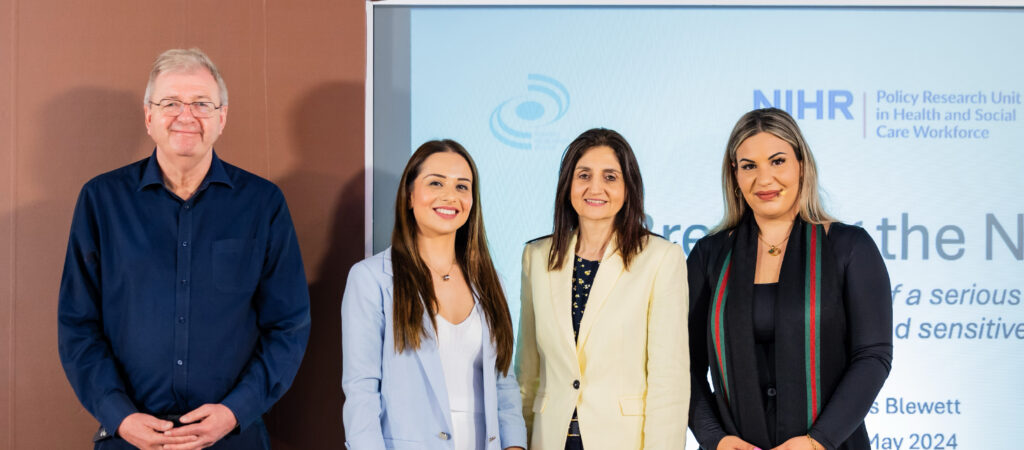
What can we do as parents when our adolescents tell us that they are feeling sad?
As parents, one of the greatest sorrows that we may have is that of seeing our children sad for some reason or another. Children of all ages are susceptible towards experiencing all types of emotion, even if they would not yet be capable of verbalising it.
Research shows that the adolescence period is a very precarious time, due to the fact that adolescents go through many bodily changes, as well as emotional and social. The adolescent’s mind would still be developing, and he/she would still not be always capable of understanding and controlling his/her emotions.
In my line of work, I often encounter parents of adolescents who express concern about the best manner in which they are to act when they observe their children in a sad mood. Thus, I am going to write down a few points which may be of assistance and of support in these circumstances.
- Be present in the adolescent’s life
Although adolescents tend to start to gravitate more towards spending time with their friends, and taking part in activities occurring outside their home, the presence of, as well as the relationship with, their parents remains a crucial one. When we are there for our children, this serves to pass on to them the message that they are important to us, and that we are there to hear them out and help them in any circumstance that they may find themselves up against.
When adolescents seem to be, or even outright tell us, that they are sad, it is important that as parents we listen to what they have to say without passing judgement on them, as well as without telling them that there is no need for them to feel this way. We may feel sad ourselves upon seeing our children suffer, however emotions cannot be likened to a switch; we cannot just simply turn them off or ignore them. First of all, we would need to discuss and understand them, so that we could then be able to see what we can do in order to make ourselves feel better.
Several times, perhaps even with a very good intention in itself, we say to adolescents: “oh no, you don’t have to feel that way!”. It may be that this message has the opposite effect of that intended. It may also be that adolescents feel more and more that no one can understand them, where because of this there would be a greater probability of them withdrawing into themselves.
So then what can we say?
We can say something such as: “I am sorry that you are feeling so sad right now. I know that you are feeling hopeless and I really wish I could help you… I am always here for you.”
- Help youths who are feeling sad to maintain an open line of communication and to continue socialising with other people

When one feels sad, there is the likelihood that one of his/her first instincts would be to remain alone and withdraw within himself/herself. Research shows that when one isolates himself/herself from others over an extended period of time, there is a risk that emotions of sadness and loneliness will increase. It is therefore important that we encourage adolescents to feel safe to confide in us, and that we continue to carry out activities related to hobbies together, such as, for example, some form of physical activity or music. Writing and drawing are also excellent methods which may aid one in expressing himself/herself further.

If we are aware that our adolescents have some close friends that they can trust, we can further encourage them to contact them so that they would be able to get out of the house and meet up with other youths who have only their best interests at heart.

Also keep in mind that a conversation with adolescents, as regarding what can help them to cope better with sadness, could also take place during a walk, a tea break or a car ride, as amongst others. Everyone is different, where it is therefore important that you identify the method which best applies in your family’s case. What is certain is that the ingredients essential for this are: patience and persistence.
- Assisting adolescents so as to maintain an ordered structure during the day itself

When one feels sad, he/she can easily start to lose the ordered structure of the day itself. It is thus most important that as parents we support our youths, in such a manner that they eat healthy meals and go to bed at an hour beneficial to their overall well-being. Another positively contributing factor is that the day remains structured, and that they continue to perform the same activities that are expected of them. This includes: that they attend school, private tuition, reading, playing some games, sports etc. Although it may very well be that one would not be in the mood to carry-out these things, we are well aware that if we continue to postpone doing so, time after time, then there is the distinct possibility that after we would feel even more sad. There is a much better chance that the general mood and emotion will change when we do something different, instead of just simply staying at home and reflecting solely on the cause of our sadness. Nevertheless, it is common knowledge that the time taken to process and understand our emotions is in itself also important, however this should not be taken to such an extent where one just spends an entire day mulling this over. Rather, when one pushes himself/herself to perform other tasks as well, this may provide him/her with even more energy so that he/she would then be able to understand better what he/she is feeling, and what he/she is able to do about it.
- As parents we are there so as to help them process what they are going through and not just necessarily to solve any problems that they might have
We can help youths to understand how they feel by asking them questions like:
– What usually tends to happen when you start to feel sad?
– What can help you to feel better?
– Could you tell me more about this?
– When you feel better what do you notice yourself as doing differently?
– Which do you believe are the choices that you have in front of you? And what are the advantages and disadvantages of each one?
– In what way can I help you?

There are also many books which may aid youths in regards to their emotions and thoughts. You may search for a few of these resources together online or even buy some books together on the subject itself. Book titles that I have sometimes recommended during the course of my practice include:
– “Beyond the Blues: A Workbook to Help Teens Overcome Depression (An Instant Help Book for Teens)” by Lisa Schab
– “The DBT Skills Workbook for Teens: A Fun Guide to Manage Anxiety and Stress, Understand Your Emotions and Learn Effective Communication Skills (Life … Health and Wellness Books For Teenagers)” by Teen Thrive
– “The Self-Compassion Workbook for Teens: Mindfulness and Compassion Skills to Overcome Self-Criticism and Embrace Who You Are (An Instant Help Book for Teens)” by Karen Bluth and Kristin Neff.
- Continuing to model our respect and support

Youths will also continue to observe us, and further note how we are facing the situations that we encounter throughout our lives. Thus, we would do well to ask ourselves these questions:
How capable are we of keeping calm and coping well during difficult times?
How comfortable do we feel in verbalising our emotions, as well as in crying in a private place, when we feel sad?
How capable are we of seeking out support from people whom we can trust?
It helps that we accept and validate all of the emotions that our adolescents experience, however this does not mean that we should accept disrespect in their behaviour. When this occurs, it is important that we correct them by maintaining the importance of respect. For example: “I understand that you are feeling sad at the moment, and you know that I am here for you, however I do not accept that you speak to me in this tone”.
- Directing adolescents and even ourselves as parents towards more professional support if we feel that this is necessary
Being strong sometimes may mean that we do not afraid to seek more help. Everyone may experience trying times, and mental health is just as vital as physical health itself in its importance. There are several free government services which exist so as to be able to help in this area, such as: Child and Young People’s Services (CYPS) and further services within the FSWS.

Charlene
Clinical Psychologist and Family TherapistClinical Supervisor


